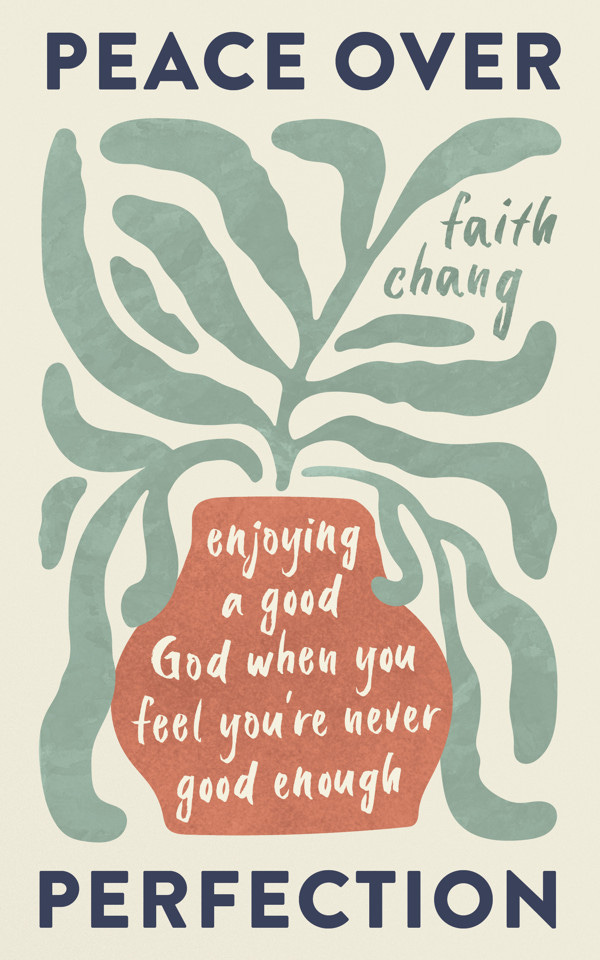Come and hear, all you who fear God, and I will tell what he has done for my soul. -Psalm 66:16
About a year ago, I wrote the words “You are making a cup” on a piece of lined paper, framed it, and propped it up on my desk. I was beginning to work on my manuscript in earnest and the framed phrase was meant to be a reminder of what I was doing and why. I don’t know that I actually looked at it much after, but it turns out the act of putting it up was enough. The sentence has been on my mind as I’ve written, edited, and now prepare to send my first book out into the world.
My note-to-self came from Charles Spurgeon’s book All of Grace, which he opens by acknowledging the plainness of his writing before telling a story: A man once placed a fountain by the side of a road, hanging a cup by it with a chain. Some time later, he gets word that a well-known art critic had criticized his design, to which he replies, But do many thirsty persons drink at it? When he hears that the answer is yes, in fact, thousands had quenched their thirst at the fountain, he smiles and says he doesn’t mind the criticism. Spurgeon then writes, “Here is my fountain, and here is my cup: find fault if you please; but do drink of the water of life. I only care for this.”
This idea of that fountain and cup has kept me honed into my why and who as I’ve worked on—here’s the title reveal— Peace Over Perfection: Enjoying a Good God When You Feel You’re Never Good Enough.
I’ve written Peace Over Perfection for those struggling with anxiety, guilt, and scrupulosity in their pursuit of God—in other words, for those who deal with some form of spiritual perfectionism, whether they recognize it as perfectionism or not. It’s for the Christian who, in his earnest desire to please God, has a hard time believing that the Father is actually delighted in him. The believer who, for all her heartfelt attempts at obedience, is constantly disheartened by her doubts, failures, and wanderings, perpetually afraid she’s going to miss God's will. It is for the burdened, the weary, the deeply loved who don’t always feel that way.
The book is my attempt to offer something different than the two solutions I see most often presented to such strugglers–to either just stop trying so hard (read: try harder to stop trying) or to just do a better job of repenting and believing the gospel. I have tried to take a third road, following the precedent of saints before me and, I believe, the word of God which holds out a better promise for weary souls–the promise of peace and rest found in the nature of God and his ways with us.
When people who know me have asked about the book, I’ve usually said a shorter version of what I’ve just written, before adding half-jokingly, “Basically, it’s a book for me.” Still, in all honestly, that is what it’s turned out to be. A book for me as a struggler now, but also a book for a past version of myself–or, at least, for others like that younger me. God has been so, so gracious to me in my lifelong struggle (and I recount some of my own journey in the book). Still, I remember different points in the last 20 years when I’ve wondered, “Why didn’t anyone tell me these things before–about God, about myself, about the Christian life?” If I’d been told some of this earlier, maybe the shame, anxiety, hopelessness, and self-hatred wouldn’t have lasted as long or been so persistent. So for the last year, I’ve worked on writing some of those things down.
This summer, I read about how National Park staff in the Grand Canyon practice preventative search-and-rescue, or “P-SAR.” These rangers are on trail patrol in eight-day shifts, not only responding to emergency situations, but working to prevent them. They walk around with salty snacks and water, identify those who are underprepared or at risk for heat exhaustion, and give spare tents and food supplies to stranded hikers. At one point in the article, the writer comes across a ranger who’d just redirected some heat-exhausted hikers to a creek. The hikers rested for 40 minutes and were good to go.
In some small way, I want to be like those park rangers, and I’m hoping that Peace Over Perfection will serve as a kind of P-SAR for those of you walking Jesus’ straight and narrow path and finding it harder than you imagined it would be. Perhaps you set out on your trek with excitement and fervor, but now your feet ache and your head hurts and you’re so tired and not sure you’ll make it to the end. Maybe you’ve come to associate Christianity with constant guilt and fear and you’re ready to quit. Or maybe your situation isn’t so dire. You’ve just been hitting the trail hard and could use a short break at a nearby creek. This book is an invitation for sojourners to sit down by the fountain of Living Water, take a drink, and find refreshment for your souls.
Unsurprisingly, throughout the writing process, I’ve needed friends to kindly remind me, “Well…you are writing a book on this,” as I’ve wrestled through doubt and anxiety, feeling so much my limits in the writing of the thing. How can I minister to tender souls with words nuanced enough to meet them in their uniquely beautiful and heartbreaking stories? How do I adequately represent these exceedingly precious truths about God? And now that I’m done with the writing of it, what is this little thing I’ve made in light of all that is heavy and broken in the world?
So it’s been helpful for me to think this way: that I have simply been making a cup. Yes, there is much I have yet to learn and ways I could’ve written better. Yes, there are many who won’t need to hear what I have to say. But there are also those who are desperate for a drink—or will be soon if they don’t get hydrated now— and will find this cup by their path at just the right time. At least that’s my hope and prayer. That the bone-weary (and those who are tired without realizing it) will come across Peace Over Perfection, and that when they do, it won’t be so much the beauty of the cup itself but the promise of the water it holds that gives life to these beloved travelers.
At my wedding, we opened with a version of David Crowder’s “Come and Listen,” and I’ve been thinking about these lyrics again as I prepare for the coming months before the book’s release:
Come and listen Come to the water's edge all you Who know and fear the Lord Come and listen Come to the water's edge all you Who are thirsty, come Let me tell you what he has done for me Let me tell you what he has done for me He has done for you He has done for us
God has done so much for me, for you, for us–and I’ve had the privilege of writing a bit about that.
So if you’re feeling thirsty, please, take a cup.
🪴 You can pre-order Peace Over Perfection: Enjoying a Good God When You Feel You’re Never Good Enough from The Good Book Company or Amazon.
If you know someone who you think might be helped by Peace Over Perfection or this post, would you consider forwarding them this email? Also, you can find me (sometimes) on Instagram.






Congratulations on your book! That is incredibly exciting, and it sounds like a topic that many (including me) will benefit from. How I wish someone had told me earlier in life that following God is not about trying to be perfect, but that Jesus is already perfect for me.